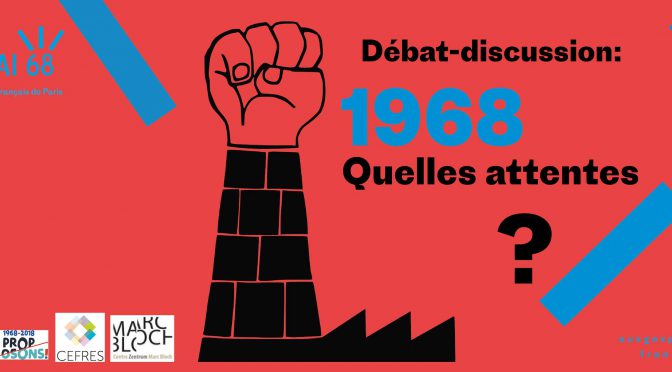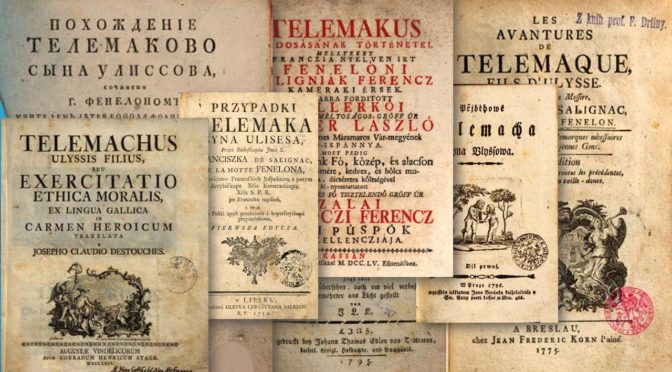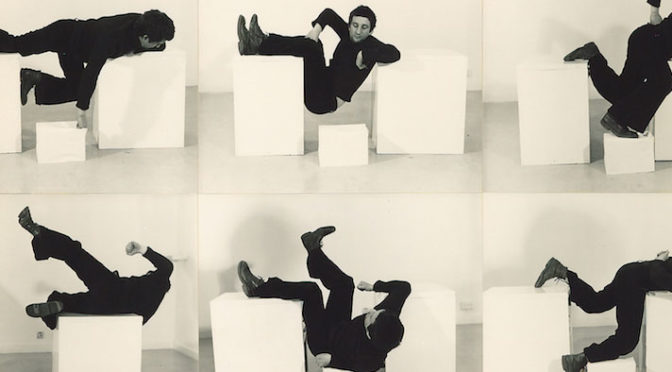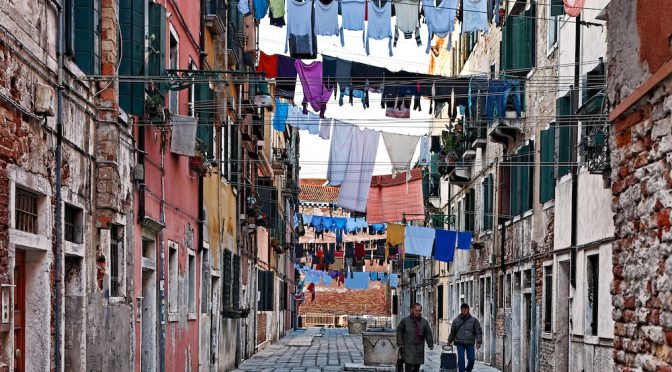
Round table
Venue and time: French Institute in Berlin, Boris Vian room (Kurfürstendamm 211, Berlin), at 7 pm
Partners: Marc Bloch Center (CMB), French Institute in Berlin (IFB), CEFRES and Nanterre University, with the support of the French Institute in Paris
Organizers: Catherine Gousseff (CMB), Sylvie Robic (Nanterre), Clara Royer (CEFRES), Dominique Treilhou (IFB)
Languages: French, German (with simultaneous translation)
This round table is part of the Cycle Mai 68, a cycle with screenings, debates, workshops and exhibitions around the 50th anniversary of the events of 1968.
With the participation of witnesses of the European events of 1968 :
- Libuše Černá (Czech Republic)
- Jan Gross (Poland)
- Jean-Yves Potel (France)
- Peter Schneider (Germany)
Moderator: Thomas Wieder (Le Monde)
For more information on Cycle Mai 68, see here
See the other events of Cycle Mai 68: the international conference West Winds, East Winds and a concluding conference in June in Prague.
See the whole program of May 68 Cycle here

IX. Biennial Conference of the Czech Society for Eighteenth-Century Studies
Date: 22–23 November 2023
Location: Institute for Czech Literature, Czech Academy of Sciences, Na Florenci 3, Prague 1 (Higher Hall, entrance C, 3rd floor)
Languages: English, German
Organizers: Czech Society for Eighteenth-Century Studies (ČSVOS),
with the support of the French Research Center in Humanities and Social Sciences (CEFRES)
and the collaboration of the Faculty of Arts, Charles University (FF UK) and the Institute of Czech Literature of the Czech Academy of Sciences (ÚČL AVČR).
Download the theses of the conference
and the abstracts of the contributions to the conference.
Program
Wednesday 22 November 2023
9:30 – Opening of the conference Continue reading Cultural Transfers in the Habsburg Monarchy in 18th Century →

Ninth session of IMS / CEFRES epistemological seminar of this semester led by:
Rose Smith (FSV UK)
Topic: Cultural Memory
Where: The session will be conducted over a videoconferencing platform. Registration: adela.landova@cefres.cz
When: Wednesday 15 April 2020, from 4:30 pm to 6 pm
Language: English
Text to be read:
Jan Assmann and John Czaplicka : “Collective Memory and Cultural Identity”, New German Critique, No. 65, Cultural History/Cultural Studies (Spring – Summer,1995), pp. 125-133

A lecture by Laurent Thévenot
(École des Hautes Études en Sciences Sociales, Paris)
Where: FSV UK – Hollar (Smetanovo nábřeží 6), room 212
While the city gave birth to detached polis and public, it is still built as a space of places which human beings are personally attached to by familiarly dwelling and inhabiting them. Instead of the reductive public/private opposition, we need to explore ways human being engage with their urban environment at various scales, working their way from close familiarity up to commonalities in the plural.
Based on transcultural empirical research – in Europe, Russia and America – which argues for extended comparative categories, the lecture proposes an analytical framework to cope with arts of human cohabitation and urban composition.
A lecture in the frame of the workshop on French Pragmatism and the Renewal of Contemporary Sociology.
International Network Meeting
Venue: Institute of Ethnology of the CAS (5th Floor), Na Florenci 3, 110 00 Prague 1
Date: 26-27 June 2019
Organizers: Institute of Ethnology of the Czech Academy of Sciences and CEFRES
Language: English
Argumentary
As part of its ongoing commitment to growing the emerging field of critical suicide studies, an international network of scholars will come together for two days in Prague to address the following goals:
1. Identify ongoing opportunities for collaborative grant-writing, research and writing projects.
2. Develop a regular conference schedule to build on the success of three international conferences to date (Prague, Canterbury, Perth). The next conference is planned for Vancouver in June 2020.
3. Articulate a set of guiding ethics to serve as a touchstone for our scholarly, practice and pedagogical engagements.
4. Continue to mobilize critique for productive ends by identifying opportunities to re-think what it means to do suicide prevention.
5. Expand the field to include scholars, practitioners and those with lived experience from around the world.
For further information: https://criticalsuicidology.net/.
 A lecture by profesor Gregor McLennan organized by Centre for Science, Technology, and Society Studies (Institute of Philosophy AV ČR), Program Prvouk 19 “Interdisciplinary sciences”, Department of Historical Sociology FHS UK and CEFRES.
A lecture by profesor Gregor McLennan organized by Centre for Science, Technology, and Society Studies (Institute of Philosophy AV ČR), Program Prvouk 19 “Interdisciplinary sciences”, Department of Historical Sociology FHS UK and CEFRES.
Where: Jinonice, U Kříže 8, Praha 5 – room 6022.
Language: English.
The lecture is going to be held within the frame of the cycle “Historical Sociology Confrontations”.
Zygmunt Bauman once characterized the shift from modernity to postmodernity in terms of the changing style of intellectuals, from the model of the ‘legislator’ to that of the ‘interpreter’. With the blurring of any sharp contrast between modernity and postmodernity, a third figure, that of the ‘mediator’, has come to the fore. Working through various ways in which the rather bland connotations of mediation can be upgraded and energized, I identify the late Stuart Hall as an outstanding mediator in the last 50 years of critical social thought – though this involves questioning some received wisdom about Hall within cultural studies itself. And it turns out that one condition of being a notable intellectual mediator is the retention of a definite degree of ‘legislation’, in this case Hall’s continued (if stretched) allegiance to Marxism. I then consider (also affirmatively) the very different case of Ernest Gellner, who is sometimes thought to have been so legislatively modernist (and thus also ‘Eurocentric’ and ideologically ‘secularist’) as to have little to offer the ‘postsecular’ frame of understanding that is increasingly prominent in our times.
Gregor McLennan is Professor of Sociology and Head of the School of Sociology, Politics and International Studies at the University of Bristol. Building on previous writings on Marxism, pluralism, sociology and cultural studies, Prof McLennan’s more recent work has examined the theoretical challenges posed by contemporary postcolonialism and postsecularism.
Contact:
– Filip Vostal (FLÚ AV ČR, CEFRES) filip.vostal@gmail.com
– Nicolas Maslowski (FHS UK) nicolas.maslowski@gmail.com
– Marek Skovajsa (FHS UK) marek.skovajsa@fhs.cuni.cz





